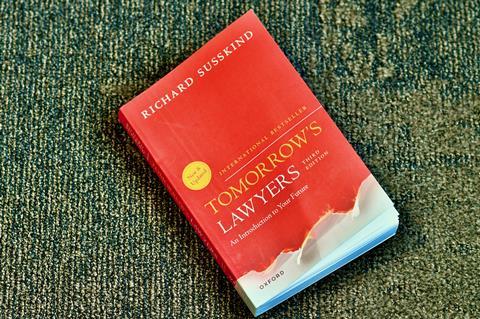A stellar collection of legal talent assembled in the Law Society's reading room last night for the launch of the latest output from the Richard Susskind publishing machine - a third edition of international bestseller Tomorrow's Lawyers. Obiter spotted Dame Elizabeth Gloster, Sir Oliver Popplewell and Sir Rupert Jackson as well as former Law Society president Lucy Scott-Moncrieff, looking relieved at completing her five-year term as House of Lords commissioner for standards.
As you might expect, the lawtech and legal data communities were out in force. However anyone hoping to hear that the legal profession is about to be replaced by robots was in for a disappointment: Susskind actually has some good news about the future of the sector.

But first, former lord chief justice Lord Thomas of Cwmgiedd set the scene with some stern words about the 'innate complacency' of a profession which has created a system where 'the majority of people have no access to justice but the elite have never been better served'. It is time for the profession to 'work in the interests of society, not in the interest of lawyers', he said.
Picking up on the theme, Susskind pointed to the juxtaposition of a flawed legal system with unparalled technological advance. Therein lies a solution to the crisis - so long as the technology is in the hands of 'benevolent custodians' rather than 'jealous guards'. He estimated that between 3,000 and 4,000 lawtech startups are active in the world - and that 'about 1,000 of them are trying to do to law what Amazon did to booksellers'. While obviously only a tiny fraction will succeed, perhaps we need only one...
So are we seeing, as Susskind notoriously asked in 2008, the end of lawyers? Not quite: humans will still be needed to design the automated systems to make the law more affordable and accessible. Indeed Tomorrow's Lawyers identifies 15 future legal roles for humans - up from eight in the first edition. They include 'legal design thinker' , 'legal no-coder' and 'legal data visualiser'.
'These, ladies and gentlemen, are tomorrow's lawyers,' Susskind announced. One or two people in the room may have been glad that they were yesterday's lawyers.































1 Reader's comment